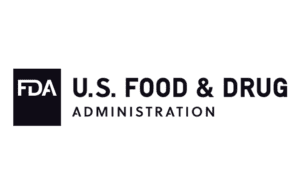 Today, an FDA advisory panel recommended that the COVID-19 vaccine candidate from Pfizer (NYSE:PFE) and BioNTech (NSDQ:BNTX) be granted emergency use authorization (EUA). A total of 77% of the 22 panelists voted “yes” to issue an EUA for the vaccine.
Today, an FDA advisory panel recommended that the COVID-19 vaccine candidate from Pfizer (NYSE:PFE) and BioNTech (NSDQ:BNTX) be granted emergency use authorization (EUA). A total of 77% of the 22 panelists voted “yes” to issue an EUA for the vaccine.
In the past week, three countries — UK, Canada and Bahrain — granted emergency use of the vaccine.
But despite the promise of making available the first vaccine against the novel coronavirus in the U.S., a range of meeting participants recommended a careful approach.
Skepticism was most apparent in the open public hearing segment of the meeting when most speakers pointed to the need for more data on the vaccine candidate.
“The two months median follow-up is just too short to have long-term safety information and long-term efficacy information,” said Diana Zuckerman, president of the National Center for Health Research, in the open public hearing. “It’s essential that the randomized control trials be continued.”
Like several other speakers in the public hearing segment, Zuckerman criticized the Phase 3 trial for having insufficient participation from seniors, minorities and pediatric volunteers.
A Pfizer spokesperson pushed back on the assertion that including minorities was not an early goal of clinical studies regarding the vaccine. “We actually, from the very start, were focused on targeting recruitment from racial and ethnic minorities,” said Dr. William Gruber, senior vice president, vaccine clinical research and development at Pfizer Inc.
Gruber also pointed out that the company is expanding its pediatric clinical research on the COVID-19 vaccine candidate. If the vaccine ultimately received a pediatric indication following the EUA, it could be incorporated into pediatric vaccination programs.
Pfizer has proposed continuing its blinded, placebo-controlled trial if the vaccine receives EUA and is currently studying the vaccine in patients as young as 12 years of age.
The consultancy firm McKinsey recently recommended that vaccine stakeholders in general “consider their long-term plans for consumer engagement in immunization.”
Somewhere, between 58% and 85% of the adult population would need to receive a vaccine that is 95% effective to reach herd immunity, according to McKinsey’s projections. It is unlikely that all COVID-19 vaccine candidates offer 95% efficacy. Clinical trial data from AstraZeneca (LON:AZN) and China’s Sinopharm (OTCMKTS:SHTDY) point to lower efficacy numbers for their vaccines.
Another variable is the potential of COVID-19 vaccines to curb transmission. According to McKinsey, assuming that such vaccines can reduce transmission by 75% or more, somewhere between 78% and 94% of the population would need to be vaccinated to reach herd immunity.
Ultimately, ensuring the most effective use of the vaccine will require more serological data, urged the virologist Angela Rasmussen in the public hearing segment. “With the limited supply of vaccines at least initially, it’s going to be really critical to determine who has already been infected with SARS-CoV-2 in order to conserve the vaccine for equitable access for others,” Rasmussen said.
Filed Under: clinical trials, Drug Discovery, Infectious Disease





Tell Us What You Think!
You must be logged in to post a comment.